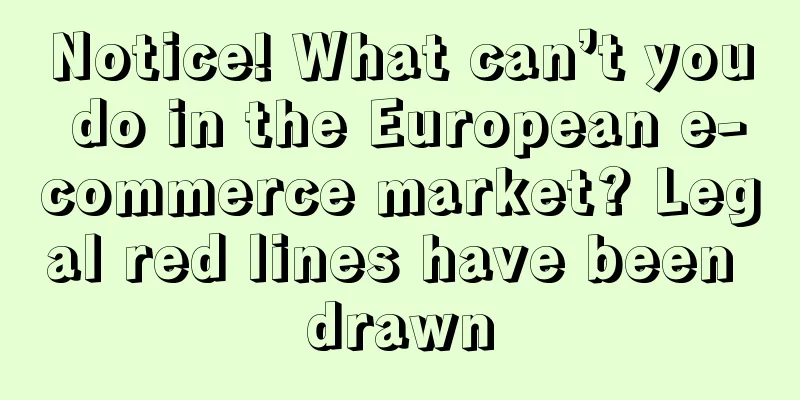Europe’s retail sector is thriving, with e-commerce and digital advertising playing a major role in its development. But the rapid growth of customer demand, changes in production, supply chain, product placement and distribution channels, as well as pressure from global competitors have become major challenges for many cross-border sellers.
Many legal uncertainties arise when a retail company decides to experiment with new ways to advertise, distribute or offer its products and services, so it’s important for sellers to be aware of these issues and keep them top of mind.
Social Media Influencer Marketing
Influencer marketing has become popular in recent years, and global brands are spending more and more on this marketing activity. However, when it comes to regulating influencer advertising, Europe has become one of the most stringent markets.
For example, German consumer protection law requires a clear distinction between social media comments and commercial content, especially in social media posts. If the influencer receives some form of compensation, then the post could be defined as an advertisement and must be disclosed. The latest case law strictly requires that advertisements must be clearly labeled so that the target audience understands their commercial nature.
Furthermore, even if the products shown in the post were purchased by the influencer themselves and no compensation was paid, the post will be considered a commercial advertisement and will be banned as a “covert advertisement”.
Due to its particularity, media law is not the only law in Germany that governs internet celebrity advertising; others include competition law and broadcasting treaties. The relevant authorities may issue a cease and desist letter or initiate injunction proceedings at any time. This applies not only to German brands, but also overseas brands. As long as the content posted by influencers is visited and viewed by German consumers, they must comply with its regulations.
While most cases to date have involved claims brought directly against influencers, retail brands should be aware of the risks. Generally speaking, companies that hire influencers will be held liable under the guise of “interference liability.” This applies not only to labelling obligations but also to misleading claims that are part of influencer posts.
Following a few basic rules can greatly reduce legal risk:
Brand owners should always have a written agreement in place with influencers. When it comes to the German market, influencer posts should be clearly and visibly labeled with the German disclosures “Werbung” (promotion) or “Anzeige” (advertisement). Brands should further provide influencers with guidelines and examples of terms and statements that can and cannot be used. This basic rule is key to ensuring brands comply with consumer protection laws.
Social Media Plugins
In its July 2016 ruling on Fashion ID (a German online retailer), the ECJ stated that website operators that embed third-party social plugins (such as a Facebook “like” button) can be considered jointly responsible with the plugin provider for processing personal data. By embedding this button, certain data related to the website visitor (such as the IP address) is automatically collected and transmitted to third parties.
The ECJ said that in this case, the website operator’s liability is limited to the processing operations it is involved in, namely the collection and transmission of the personal data to third parties, and not to any subsequent activities.
According to the ECJ, website operators that embed social plugins must state the legal basis for data processing, such as consent from website visitors or legitimate interests. Where necessary, website visitors’ consent must be obtained before their personal data is collected. Furthermore, within the scope of their information duties, the operators of websites must ensure that their visitors are informed at the time of collection of their information about the collection and disclosure of their personal data to third parties.
Therefore, website operators that embed third-party plugins should review their privacy notice to ensure that it contains all necessary information (i.e., regarding the data shared through the plugin, the identity of the third party, etc.).
Tax implications of employee incentives
A common way to motivate employees is to give their products directly to employees or sell them to them at a very low price, however, in doing so, the tax implications are ignored. From a German tax perspective, donated products or discounted sales are considered a benefit to the company's employees, and since these benefits are part of the employee's salary, payroll taxes and social security contributions must be collected by the employer and paid to the competent tax authorities.
VAT may be payable when assets are withdrawn from the company. Additionally, the company may have committed social security and tax fraud, which could result in additional fines and penalties.
Anti-Money Laundering
In recent years, European authorities have adopted draft legislation aimed at combating money laundering. However, the extent to which the law affects a business and the steps a business needs to take to comply with the law can vary widely depending on its business activities, customer structure, and payment and collection methods.
Therefore, if you are trading goods in Europe, then as a first rule you should avoid accepting or paying €10,000 or more in cash. In this regard, it makes no difference whether you pay or receive the amount all at once or in separate transactions.
If you cannot avoid such cash transactions or your transactions may be used for money laundering, you must perform various operations to ensure that you understand the identity and purpose of the transaction. If the risk of your business being used for money laundering is higher, you may need to consider more systemic protections to conduct risk analysis within your company in order to effectively prevent this type of abuse. Implementing such systems and procedures can be complex, time-consuming and expensive and also requires the establishment of internal compliance structures, including the appointment of anti-money laundering officers and training of employees. However, you need to at least understand the regulatory regime, assess your compliance risks, and consider some basic practical steps to manage those risks.
As the retail sector continues to evolve and new market opportunities continue to attract foreign retailers, corporate governance and regulation will also face challenges across multiple jurisdictions, whether it is branding, marketing, data privacy or employee issues.

